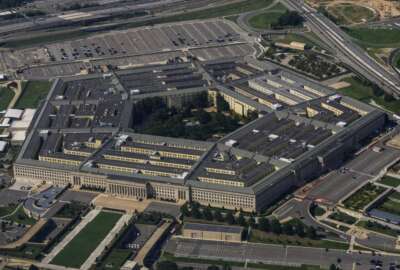Troubled background investigation system still under review at Pentagon
The chairman of the Senate Intelligence Committee called the delays with the next-generation background investigation system a "disaster."
The Defense Department is still finalizing a new schedule and budget for the National Background Investigation Services IT system.
DoD’s recent 90-day review of the NBIS system has led to a new 18-month roadmap for the software development project. But Milancy Harris, acting under secretary of defense for intelligence and security, said her office and the under secretary of defense for acquisition and sustainment are engaged in a “month-long” process of re-baselining the project.
“We’re looking to make sure that we can use what has been built,” Harris said during a July 10 Senate Select Committee on Intelligence hearing. “We are exploring exactly what needs to happen going forward to ensure we meet the full level of capability that is expected from this system. At this time, we are in the process of refining exactly our understanding of that timeline.”
Harris said the new documentation will include an independent cost estimate.
During the hearing, Committee Chairman Mark Warner (D-Va.) called the NBIS delays a “disaster.” The next-generation background investigation system still potentially faces years of development, even though it was originally planned to be delivered in 2019.
“If we don’t get NBIS right, the whole security clearance reform process crumbles,” Warner said.
NBIS is a lynchpin in the White House-led “Trusted Workforce 2.0” personnel vetting reform initiative. The goal of the overarching initiative is to overhaul and modernize the federal government’s vetting process, including by bringing most agencies under one background investigation system.
But the Government Accountability Office in recent years has reported on significant challenges with NBIS, including funding shortfalls due to shifting priorities at DCSA, as well as an unreliable schedule and cost estimate.
Background investigation system requirements
During last week’s Senate hearing, lawmakers and witnesses also focused on challenges with how the NBIS program office managed requirements for the background investigation system.
“The requirements were outlined in Trusted Workforce 2.0,” Harris said. “I think what we had was a breakdown in how those requirements were being managed into technical requirements for the development and how we were taking account of the delays in that process. And that is something that we are seeking to remedy immediately with more proactive oversight.”
The Pentagon has recently elevated the acquisition decision authority for NBIS from the DCSA director to the under secretary for acquisition and sustainment, while the program sponsor is now the under secretary for intelligence and security.
Meanwhile, new DCSA Director David Cattler has said getting NBIS back on track is one of his top priorities. DCSA also manages about 95% of the federal government’s background investigation cases.
During the Senate hearing, Cattler acknowledged that while the original NBIS requirements were achievable, DCSA did not have a “firm understanding of the complexity, of the technical features, nor how exactly to approach those and accomplish them.”
“We’ve brought in some new people,” Cattler said. “We know where our gaps are in the skill sets that we need to hire on the government side, we’re working with the contractor as well on actions need to be taken there. And we’re also evaluating the requirements baseline.”
Copyright © 2024 Federal News Network. All rights reserved. This website is not intended for users located within the European Economic Area.
Follow @jdoubledayWFED






